Fish Report for 12-13-2017
GGSA December News and Updates
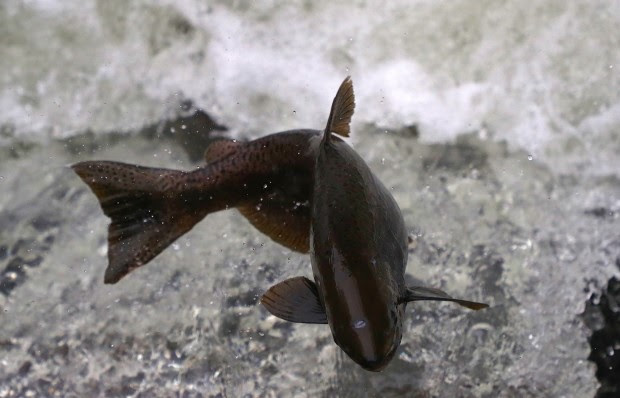
by GGSA Staff
12-13-2017
Hatchery returns, good and bad
Most California salmon hatcheries are getting the returns they need to hit their production targets for baby salmon that will be released in 2018. The exception is the Coleman Hatchery near Redding. The Mokelumne hatchery is on track to match or break a record set in 2011 for adult returning salmon. Coleman hatchery in the far northern Sacramento Valley has not gotten the returning adults it hoped for and has supplemented its broodstock with fish taken early from the Nimbus hatchery on the American River.
At last report, the Feather River and Nimbus hatcheries appeared to have adequate returning adult salmon to get the broodstock needed. Mokelumne hatchery returns were stronger as a result of improved hatchery management and release practices that increased survival of the baby salmon. On the other hand, the Coleman hatchery struggled with many of their fish returning to rivers in the lower Sacramento Valley, an effect of trucking the fish to release sites in the Bay and Delta two years ago to survive the drought. This was done to save the fish from certain death in the drought-plagued Central Valley rivers at the time.
After GGSA prod, CDFW says no to illegal Delta water diversion
The current White House and its San Joaquin Valley Congressional allies moved in October to violate federal water rules set in 2008 that require extra water releases to the Delta in October following a wet winter. The purpose is to aid in the production of fresh/brackish water plankton, which is good food for native fish, west to about Suisun Bay.
Instead the federal pumps were cranked up to divert the Delta flows. But the CA Dept. of Fish and Wildlife’s (CDFW) consent was needed to fully carry out the illegal act and fortunately CDFW refused to sign off on it after GGSA and others pressed them to instead stand up for a healthy Bay and Delta environment.
GGSA standing against more Delta pumping, practice harmful to salmon
Federal water officials are conspiring to divert peak storm water runoff flows needed by salmon from the Bay Delta in violation of federal protections in place since 2009. A new law passed in late 2016 provides cover for such diversions but only if a handful of fish and wildlife agencies all agree that doing so won’t harm species protected by the federal Endangered Species Act. The species include steelhead, winter and spring run salmon, sturgeon and Delta smelt.
With near record low numbers of winter run salmon and smelt, it’s hard to imagine any responsible wildlife official signing off on such an action, especially this year, as populations struggle to rebound. GGSA is directly engaged with the National Marine Fisheries Service and others to head off any potential approval of extra water diversions.
GGSA Acts to Save Federal Salmon Restoration Fund
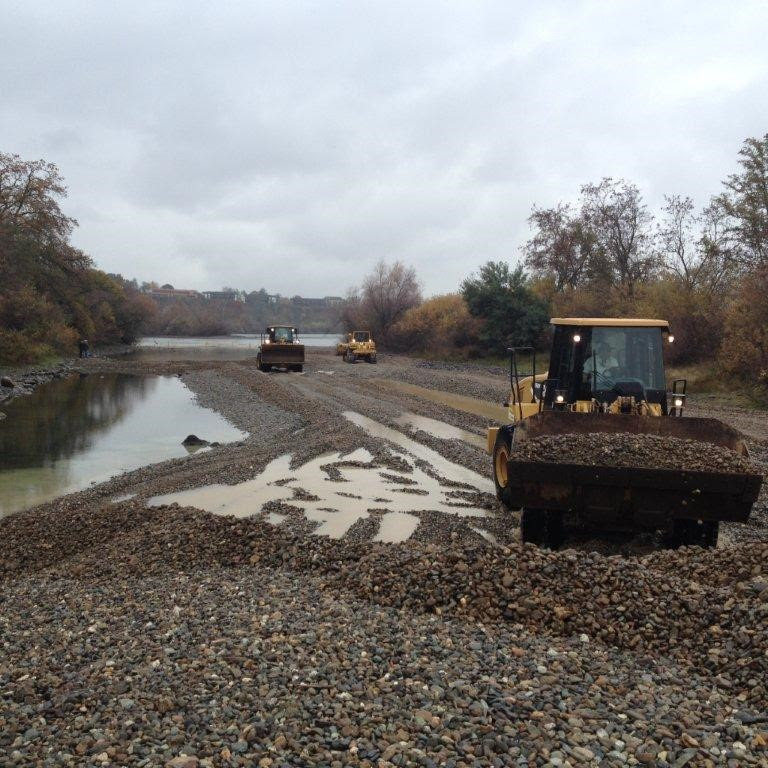
In recent years part of this money has been spent restoring spawning gravel and rearing channels in the upper Sacramento River, among other things. Now the electric utilities are saying they want out of the deal. With solar panels on many rooftops and other sustainable electric options, they don’t want to be locked into contracts to buy hydropower from the federal dams. In the meantime, GGSA has added its voice to a request to the feds to hold the power and water users to the terms and conditions they agreed to.
GGSA Joins New Central Valley Habitat Restoration Effort
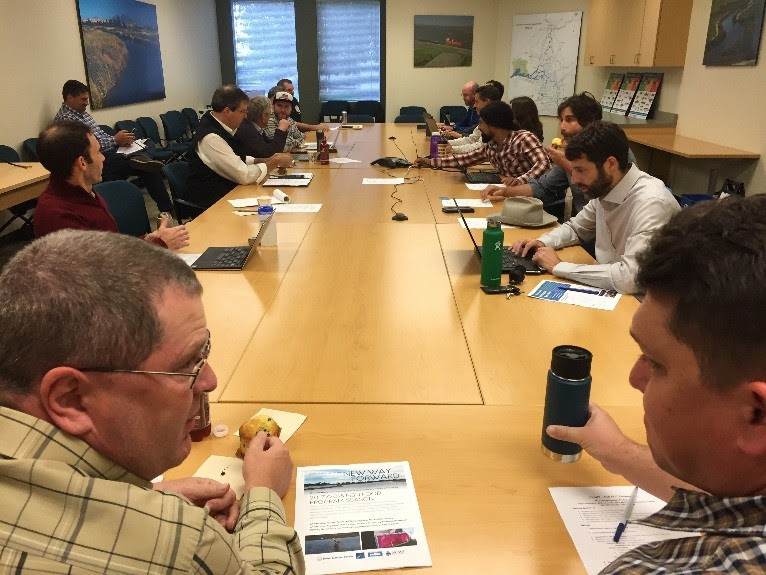
The salmon habitat parties know they’ll never agree on the issue of water diversions from the salmon rivers but they expect to find agreement on the need to restore other parts of salmon habitat. The salmon advocates know the farm groups control much of the land and equipment needed to undo the decades of river and wetland modification in the Central Valley that occurred in the days when landscape-wide changes happened almost overnight with virtually no regulation. Only time will tell if this effort will accelerate the habitat restoration that is needed.
GSA Sonoma Fundraising Dinner a Success, Volunteer Chefs Rock
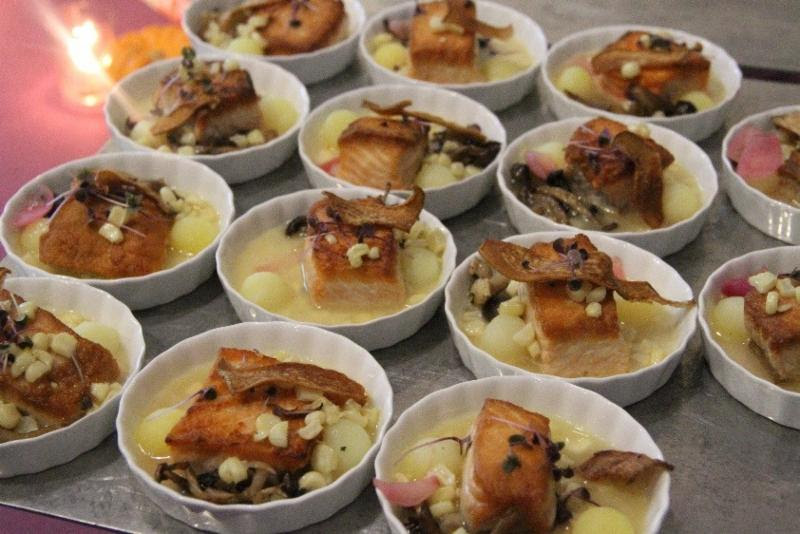
The donated salmon was a highlight of the evening and the four chefs all did a great job uniquely preparing it. The dinner honored the local dairy and wine growing Mulas family for their forward thinking use of recycled water on their fields and vines, producing some of the best anywhere. Money raised by the event was split between fire relief efforts and support for GGSA’s salmon efforts.
Link to a Sonoma Index-Tribune column about the event
Twin Tunnels Project Uncertain Future
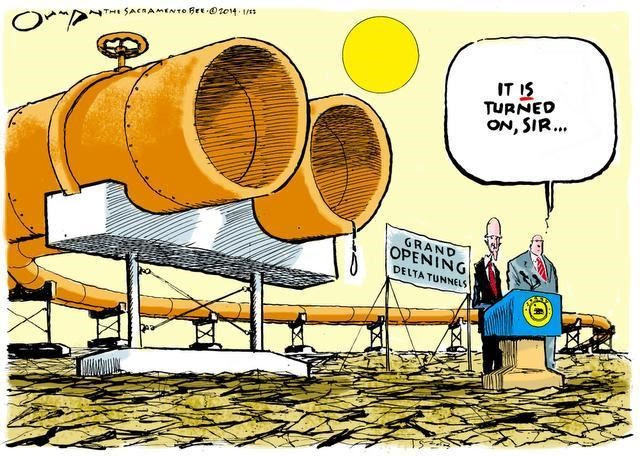
Salmon Eggs Again Being Lost
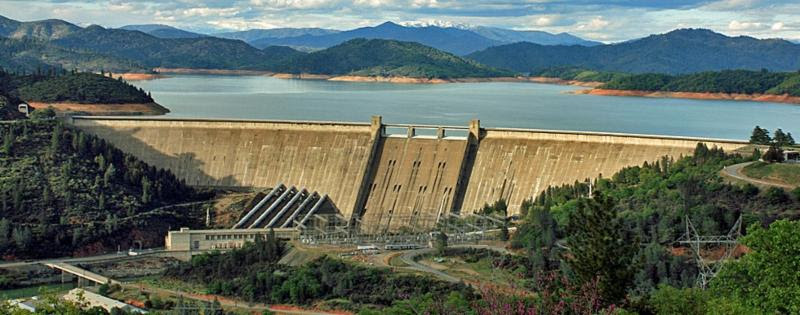
Early reports indicate that few salmon nests, or redds, were dewatered because so few adult salmon have returned to the upper Sacramento this year. That’s due to the drought that overheated the river during spawning and destroyed the migratory route to the sea for survivors two years ago, killing most of them when they were babies. GGSA lodged a protest with the operators of the Shasta Dam in November when the issue was first brought to our attention.
GSA meets with state and federal fishery officials to hash out salmon-saving steps
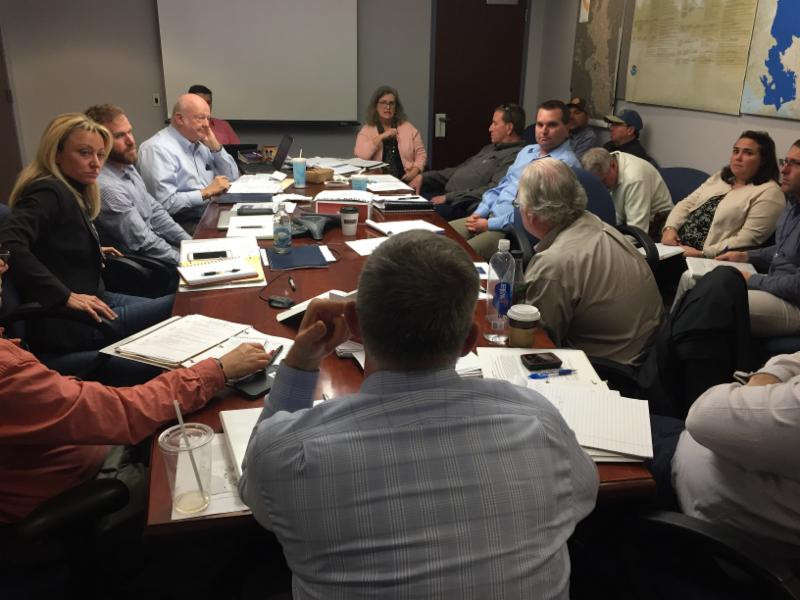
GGSA also asked for:
- Help to get the California Dept. of Water Resources to pay their fair share for coded wire tags. These are small bits of wire inserted in hatchery fish to determine survival, migration patterns and other needed information.
- Restoration actions on the Feather River, where the Oroville Dam Spillway failed in 2016.
- Release of reservoir water in the spring, especially in low water years, needed to flush baby salmon out of the Central Valley and to the Delta and bay.
- Review of various other proposals to increase Central Valley salmon runs.
The Golden Gate Salmon Association is a coalition of salmon advocates that includes commercial and recreational salmon fisherman, businesses, restaurants, a native tribe, environmentalists, elected officials, families and communities that rely on salmon.
GGSA’s mission is to restore California salmon for their economic, recreational, commercial, environmental, cultural and health values.
Currently, California’s salmon industry is valued at $1.4 billion in economic activity annually in a regular season and about half that much in economic activity and jobs again in Oregon. The industry employs tens of thousands of people from Santa Barbara to northern Oregon. This is a huge economic bloc made up of commercial fishermen, recreational fishermen (fresh and salt water), fish processors, marinas, coastal communities, equipment manufacturers, the hotel and food industry, tribes, and the salmon fishing industry at large.
< Previous Report Next Report >
< Previous Report Next Report >
More Reports
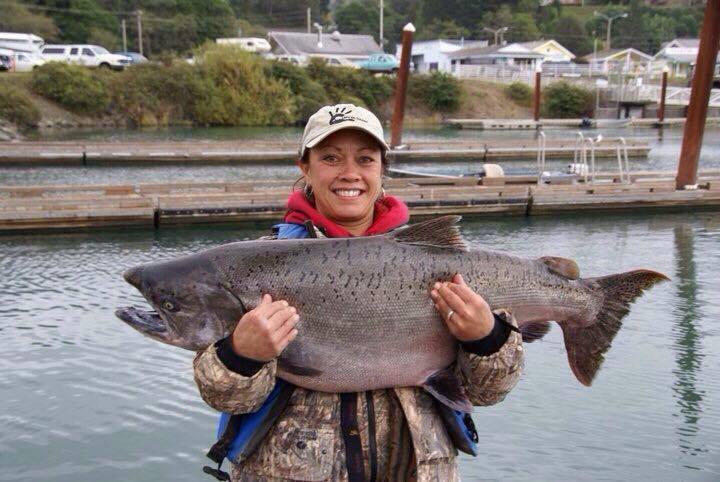
10-24-2017
The Golden Gate Salmon Association (GGSA) will host its 4th Annual Sonoma Dinner on Thursday, November 9 at Cornerstone Event Center. The dinner will honor the Sonoma Valley...... Read More

Website Hosting and Design provided by TECK.net